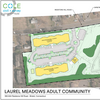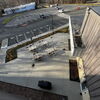
Processing Your Payment
Please do not leave this page until complete. This can take a few moments.
- News
-
Editions
View Digital Editions
Biweekly Issues
- May 13, 2024
- April 29, 2024
- April 15, 2024
- April 1, 2024
- March 18, 2024
- March 4, 2024
- February 19, 2024
- February 5, 2024
- January 22, 2024
- + More
Special Editions
- Lists
- Viewpoints
- HBJ Events
- Business Calendar
- Custom Content
Reach for the sky: A tale of tall buildings



Can you judge a city by its skyline?
Not in Connecticut. The state’s largest city, Bridgeport, has virtually no skyline — just three structures (Bridgeport Center, Park City Plaza and Embassy Towers) over ten stories — and none among the 25 tallest in the state. (The most prominent profile on the Bridgeport skyline is a smokestack, for heaven’s sake.)
Our capital city, Hartford, has a kind-of skyline that mimics major cities (just more condensed), topped by the 38-story, 535-foot City Place I. (Stamford doesn’t count, because it’s New York.)
In skyline terms, New Haven falls in between Hartford and Bridgeport. Two of the three tallest structures — the 26-story Connecticut Financial Center (383 feet tall — the only Elm City structure among Connecticut’s top-10 tallest) and the 31-story 360 State Street (338 feet) are baby buildings chronologically — completed in 1990 and 2010, respectively. The skyline’s most distinctive silhouette, the 321-foot Knights of Columbus headquarters tower, was completed in 1969.
For much of the 20th century, New Haven’s tallest structure was the 17-story (196 feet in height) Southern New England Telephone building on Church Street. When that structure opened in 1938 it eclipsed (literally and figuratively) its almost-neighbor, the c. 1927 Union Trust building (164 feet) on the northeast corner of Church and Elm.
What superseded the SNET HQ at the top of the heap in 1966 was a building that few today even think of as part of the city skyline — the 250-foot Kline Biology Tower atop Science Hill, still (and likely forever) the tallest structure on the Yale campus.
Two of the tallest Connecticut structures you’d likely never guess — because they’re not even located in cities. Completed in 2002, the 36-story (486 feet) Mohegan Sun Sky Tower is the state’s tallest building outside of Hartford. Its newer (2007) Foxwoods counterpart is larger in volume, but not in height (325 feet, 26 stories).
To try to make sense of Connecticut’s mishmosh of tall buildings and why they sprouted where they did, we asked a certifiable Big Thinker about these things — Madison architect Duo Dickinson, who writes about architecture and urbanism for a host of print and online periodicals.
What strikes Dickinson most about Connecticut’s urban skylines is not just the absence of tall buildings — but the dearth of structures worthy of distinction.
“Bridgeport has but one iconic presence in urban architecture, for good or for ill, the People’s Bank Building by Richard Meier,” Dickinson observes. “The array of completely uncoordinated buildings along I-91 or I-84 in Hartford shows tall buildings in strange comparison. Stamford has an ever-growing [profile] of bland towers and the Elephant Parade of ‘Mod’ buildings hard by I-95.”
Why does New Haven not have a skyline a la Hartford or Stamford? For one thing, Dickinson explains, New Haven’s urban core is dominated, purposely, by open space. It is not being facetious to observe that the city’s “skyline” is actually on the ground — the New Haven Green and the surrounding low-rise Yale campus.
That open space at the Elm City’s core “allows air between the towers of Philip Johnson (Kline Tower), Kevin Roche (Knights of Columbus) and James Gamble Rogers (Harkness Tower),” Dickinson adds.
Moreover, “The common denominator for these small cities (unlike New York City) is that any water view is now forgotten” — unlike a century ago, when any artistic representation would be from the vantage point of Long Island Sound or the Connecticut River. “Now the car, on the elevated highway, is how we see, and thus remember, skylines.
“It is life at 60 mph,” he adds.

2022 Giving Guide
This special edition informs and connects businesses with nonprofit organizations that are aligned with what they care about. Each nonprofit profile provides a crisp snapshot of the organization’s mission, goals, area of service, giving and volunteer opportunities and board leadership.
Learn more
Subscribe
Hartford Business Journal provides the top coverage of news, trends, data, politics and personalities of the area’s business community. Get the news and information you need from the award-winning writers at HBJ. Don’t miss out - subscribe today.
Subscribe
2024 Book of Lists
Delivering Vital Marketplace Content and Context to Senior Decision Makers Throughout Greater Hartford and the State ... All Year Long!
Read Here-
2022 Giving Guide
This special edition informs and connects businesses with nonprofit organizations that are aligned with what they care about. Each nonprofit profile provides a crisp snapshot of the organization’s mission, goals, area of service, giving and volunteer opportunities and board leadership.
-
Subscribe
Hartford Business Journal provides the top coverage of news, trends, data, politics and personalities of the area’s business community. Get the news and information you need from the award-winning writers at HBJ. Don’t miss out - subscribe today.
-
2024 Book of Lists
Delivering Vital Marketplace Content and Context to Senior Decision Makers Throughout Greater Hartford and the State ... All Year Long!
ABOUT
ADVERTISE
NEW ENGLAND BUSINESS MEDIA SITES
No articles left
Get access now
In order to use this feature, we need some information from you. You can also login or register for a free account.
By clicking submit you are agreeing to our cookie usage and Privacy Policy
Already have an account? Login
Already have an account? Login
Want to create an account? Register
Get access now
In order to use this feature, we need some information from you. You can also login or register for a free account.
By clicking submit you are agreeing to our cookie usage and Privacy Policy
Already have an account? Login
Already have an account? Login
Want to create an account? Register






0 Comments